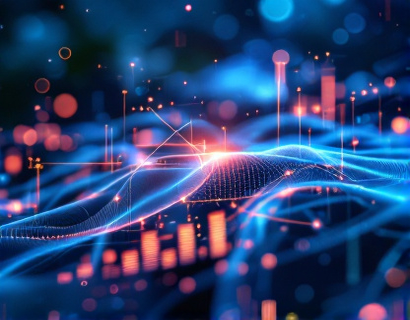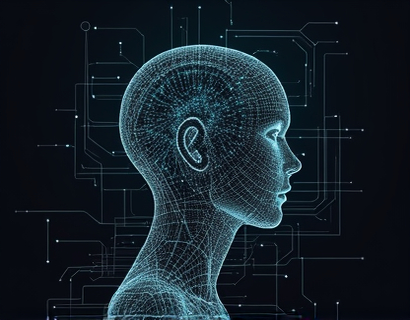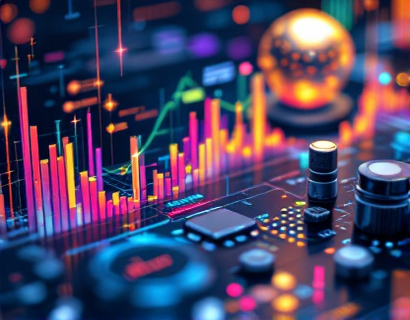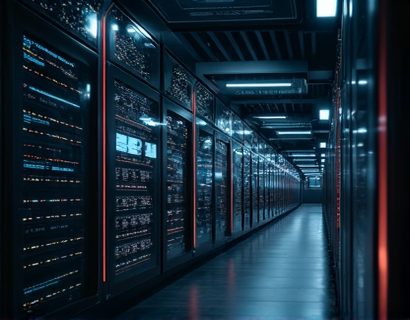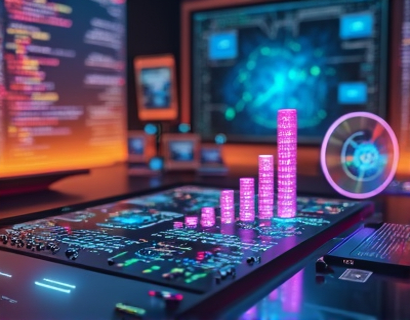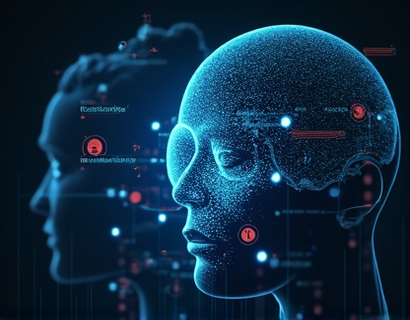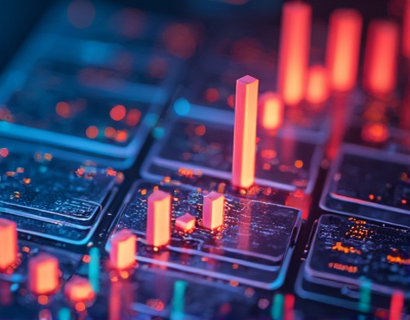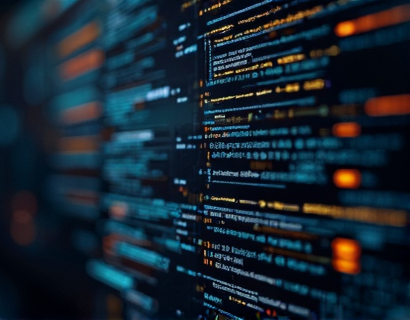AI and Crypto Convergence: Unlocking the Future of Intelligent Blockchain Finance Solutions
The intersection of artificial intelligence (AI) and cryptocurrency is paving the way for a new era in finance and technology. This convergence is not just a trend but a transformative shift that promises to revolutionize how we perceive, interact with, and utilize financial systems. As we delve into this topic, it's essential to understand the foundational elements of both AI and cryptocurrency, and how their integration is unlocking unprecedented possibilities in the realm of intelligent blockchain finance solutions.
Artificial intelligence, defined by its ability to simulate human intelligence processes such as learning, reasoning, and self-correction, has been rapidly advancing over the past decade. Machine learning, a subset of AI, focuses on building systems that can learn from and make decisions based on data. In the context of blockchain and cryptocurrency, AI's capabilities can enhance security, optimize transactions, and provide deeper insights into market trends and behaviors.
Cryptocurrency, on the other hand, represents a decentralized digital currency that uses cryptography for security and operates on a distributed ledger technology known as blockchain. The most well-known cryptocurrency, Bitcoin, was launched in 2009, but the technology behind it has evolved significantly since then. Blockchain's inherent transparency, immutability, and decentralization make it an ideal platform for various applications beyond just currency, including smart contracts, supply chain management, and identity verification.
The convergence of AI and cryptocurrency is particularly exciting because it leverages the strengths of both technologies. AI can analyze vast amounts of data from blockchain networks to identify patterns, predict market movements, and automate complex decision-making processes. Conversely, the transparency and security of blockchain provide a robust framework for AI systems to operate in a trustless environment, ensuring data integrity and reducing the risk of fraud.
Enhanced Security Through AI
One of the most significant benefits of integrating AI into blockchain finance is enhanced security. Blockchain networks, while secure, are not immune to attacks. AI can play a crucial role in detecting and mitigating these threats. Machine learning algorithms can analyze transaction patterns and identify anomalies that may indicate malicious activity. For instance, AI can monitor for unusual spending patterns or suspicious transactions that deviate from the norm, alerting network participants and enabling swift action to prevent fraud.
Moreover, AI can improve the security of smart contracts, which are self-executing contracts with the terms directly written into code. By analyzing the code for vulnerabilities and potential exploits, AI can help developers create more secure and reliable smart contracts. This is particularly important as the use of smart contracts grows in various industries, from real estate to insurance.
Optimized Transactions and Smart Routing
AI can also optimize cryptocurrency transactions, making them faster and more efficient. Traditional blockchain networks often face issues with transaction delays and high fees, especially during periods of high network activity. AI algorithms can analyze network conditions in real-time and dynamically route transactions through the most efficient paths, reducing delays and lowering costs. This smart routing capability ensures that transactions are processed quickly and cost-effectively, enhancing the overall user experience.
Additionally, AI can predict transaction fees and network congestion, allowing users to time their transactions for optimal performance. By leveraging historical data and real-time analytics, AI can provide insights that help users make informed decisions, further improving the efficiency of blockchain-based financial systems.
Intelligent Market Analysis and Trading
The integration of AI in cryptocurrency trading is transforming the way traders analyze markets and make investment decisions. AI-driven trading bots can process vast amounts of data from multiple sources, including social media, news feeds, and market data, to identify trends and make predictions. These bots can execute trades automatically based on predefined strategies, reducing the emotional bias that often affects human traders.
Machine learning models, particularly those using deep learning techniques, can uncover complex patterns and correlations in data that are not easily discernible by human analysts. This capability allows for more accurate forecasting of market movements, enabling traders to capitalize on opportunities and mitigate risks. AI can also adapt to changing market conditions, continuously refining its strategies to stay ahead of the curve.
Personalized Financial Services
AI's ability to analyze individual user data and behavior opens up new possibilities for personalized financial services in the cryptocurrency space. By understanding a user's financial goals, risk tolerance, and investment preferences, AI can provide tailored recommendations and automated portfolio management. This level of personalization enhances the user experience and can lead to better investment outcomes.
For example, AI-powered financial advisors can offer customized investment strategies based on a user's specific needs and market conditions. These advisors can monitor portfolio performance in real-time, making adjustments as necessary to optimize returns. This level of automation and personalization is particularly valuable for retail investors who may lack the expertise to manage their investments effectively.
Decentralized Finance (DeFi) and AI
The rise of Decentralized Finance (DeFi) has further accelerated the convergence of AI and cryptocurrency. DeFi platforms leverage blockchain technology to create financial services such as lending, borrowing, and trading without intermediaries. AI can enhance DeFi by providing more sophisticated risk management tools, fraud detection systems, and automated market makers.
AI-driven risk assessment models can evaluate the creditworthiness of users in decentralized lending platforms, reducing the need for traditional credit checks and expanding access to financial services. Additionally, AI can detect and prevent fraudulent activities in DeFi protocols, ensuring the integrity of the ecosystem. Automated market makers powered by AI can provide liquidity and tighter spreads, making trading more efficient and cost-effective.
Challenges and Considerations
While the potential benefits of AI in blockchain finance are significant, there are also challenges and considerations that need to be addressed. One of the primary concerns is the regulatory landscape. As AI and cryptocurrency continue to evolve, regulators are grappling with how to oversee these technologies to prevent misuse and ensure compliance with existing laws. Developers and businesses must stay informed about regulatory changes and ensure their solutions comply with relevant regulations.
Another challenge is the computational resources required for AI algorithms, particularly those involving deep learning. Training complex models can be resource-intensive, requiring significant computational power and energy. This raises environmental concerns and necessitates the development of more efficient algorithms and sustainable practices.
Data privacy is also a critical issue. AI systems rely on large datasets to function effectively, and the collection and use of this data must be handled with care to protect user privacy. Implementing robust data governance frameworks and adhering to privacy regulations such as GDPR is essential to build trust and ensure the responsible use of AI in blockchain finance.
Future Outlook
Looking ahead, the convergence of AI and cryptocurrency is poised to drive further innovation and transformation in the financial sector. As AI technologies continue to advance, we can expect even more sophisticated applications in blockchain finance. For instance, the integration of AI with quantum computing could lead to breakthroughs in cryptography, enhancing the security of blockchain networks beyond current capabilities.
Moreover, the development of AI-powered decentralized autonomous organizations (DAOs) could redefine governance and decision-making in blockchain ecosystems. DAOs leveraging AI can automate complex processes, ensure transparency, and empower community-driven initiatives, creating a more inclusive and resilient financial system.
In conclusion, the convergence of AI and cryptocurrency represents a powerful synergy that is reshaping the future of finance. By enhancing security, optimizing transactions, enabling intelligent market analysis, providing personalized services, and revolutionizing DeFi, this convergence is unlocking new possibilities for tech enthusiasts and professionals alike. As the field continues to evolve, staying informed and engaged with this dynamic intersection will be crucial for anyone looking to navigate and thrive in the next generation of financial technologies.




